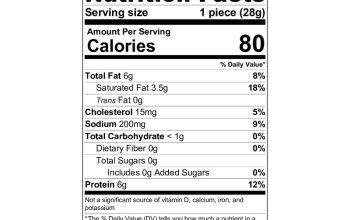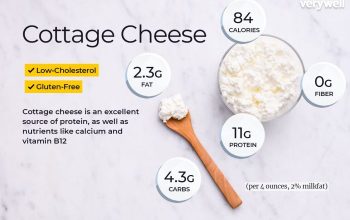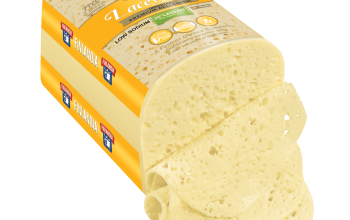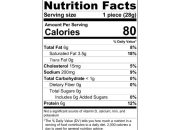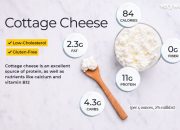Health Benefits and Risks of Cottage Cheese Consumption
1 2 cup cottage cheese nutrition – Let’s get cheesy! We’ve already tackled the nutritional breakdown of 1.2 cups of cottage cheese, so now it’s time to delve into the good, the bad, and the curdly. Prepare for a journey into the fascinating world of dairy-based delights (and potential digestive dramas).
Health Benefits of Cottage Cheese Consumption, 1 2 cup cottage cheese nutrition
Cottage cheese isn’t just a delicious snack; it’s a nutritional powerhouse (at least when consumed in moderation, of course!). That 1.2 cups you’re considering packs a punch of protein, calcium, and other goodies that contribute to various aspects of your well-being. Think of it as a tiny, delicious superhero for your body.
Consuming 1.2 cups of cottage cheese can contribute to improved satiety, keeping you feeling fuller for longer and potentially aiding in weight management. The high protein content helps build and repair muscle tissue, making it a favorite among fitness enthusiasts. Furthermore, the calcium content is crucial for maintaining strong bones and preventing osteoporosis, especially as we age.
Risks of Excessive Cottage Cheese Consumption
While cottage cheese offers many benefits, overdoing it can lead to some less-than-desirable consequences. Remember, moderation is key, even with something as seemingly innocuous as creamy, dreamy cottage cheese.
Excessive consumption of cottage cheese can result in a high sodium intake, potentially contributing to high blood pressure in susceptible individuals. Also, the high protein content, while beneficial in moderation, can sometimes lead to digestive discomfort such as bloating or gas in some people. It’s a bit like a superhero with a mild kryptonite allergy – a little goes a long way!
Image Caption: The Gut Microbiome and Cottage Cheese
The image depicts a vibrant, bustling cityscape representing the human gut. Towering skyscrapers symbolize beneficial bacteria thriving in a healthy gut environment after cottage cheese consumption. These buildings are brightly lit and well-maintained, reflecting the positive impact of the cheese’s probiotics and nutrients. In contrast, a small, dilapidated shack in a dark corner represents potentially harmful bacteria, significantly outnumbered and less impactful in the overall healthy gut environment.
The overall scene is one of vibrant health and balanced microbial activity, illustrating the positive effects of cottage cheese on gut health in moderation.
FAQ Summary: 1 2 Cup Cottage Cheese Nutrition
Is cottage cheese good for weight loss?
Yes, cottage cheese can aid in weight loss due to its high protein content, which promotes satiety and helps you feel fuller for longer. The protein also supports muscle mass, which boosts metabolism.
Does cottage cheese cause bloating?
Some individuals might experience bloating due to the lactose content in cottage cheese. If you’re lactose intolerant, opt for lactose-free varieties. Starting with smaller portions can also help your body adjust.
Can I eat cottage cheese every day?
While cottage cheese is nutritious, consuming it daily might lead to an excess of sodium or saturated fat depending on the brand. Variety in your diet is always best.
What’s the best way to store cottage cheese?
Store cottage cheese in an airtight container in the refrigerator. It typically lasts for about a week after opening.
So, you’re crunching the numbers on that 1/2 cup of cottage cheese nutrition? Good for you, protein powerhouse! But let’s be honest, sometimes you crave that melty, processed goodness – which is where checking out the kraft cheese slices nutrition facts comes in handy for comparison. Then, after that cheesy detour, you can happily return to your high-protein, low-fat cottage cheese dreams.

